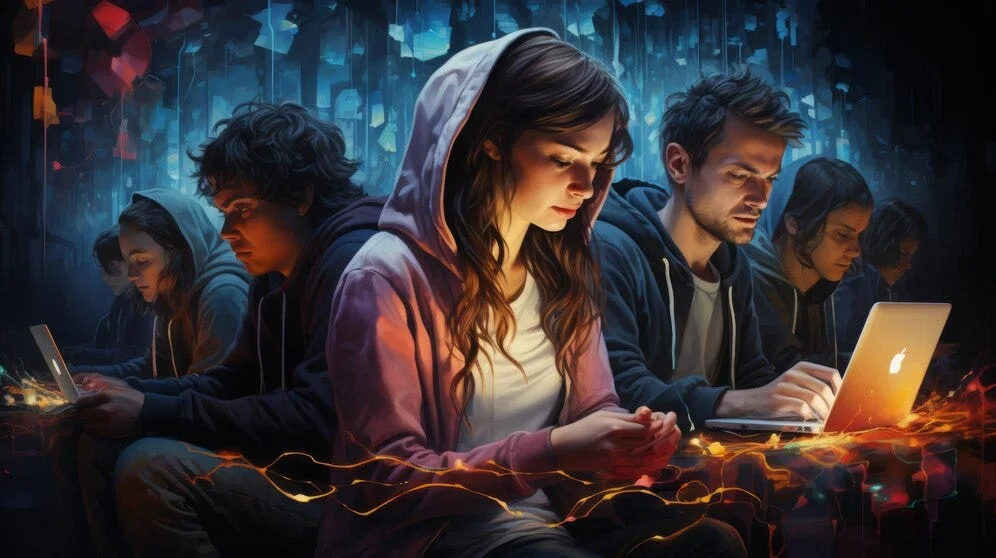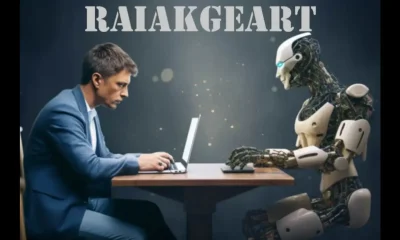Blog
Voldis Cheatsheet: Your Ultimate Quick-Reference Guide
Published
4 months agoon
By
Henry
In the fast-paced world of digital productivity, knowing how to navigate tools effectively is key to staying ahead. Voldis, a comprehensive platform designed for seamless collaboration, task management, and data visualization, has quickly become a favorite among professionals. Whether you’re new to the platform or a seasoned user, having a quick-reference guide can enhance your productivity and make your work processes smoother. This article provides the ultimate Voldis Cheatsheet, offering a deep dive into its essential features, tools, and shortcuts.
Meta Description: Explore the Voldis Cheatsheet, a quick-reference guide designed to help you master the platform’s features, tools, and shortcuts for maximum productivity.
Introduction to Voldis: Why You Need a Cheatsheet
Voldis is a versatile platform that integrates various tools for task management, data analysis, collaboration, and content creation. It’s particularly useful for teams working in fast-paced environments where time and efficiency are paramount. While Voldis is intuitive, its vast array of features can sometimes feel overwhelming. A cheatsheet is an essential tool that not only helps users quickly access the platform’s functionalities but also maximizes efficiency by offering shortcuts and time-saving tips.
This Voldis Cheatsheet is designed to be a comprehensive reference guide, covering everything from the most basic tools to advanced features that will boost your productivity and streamline your workflows.
Voldis Platform Overview
Before diving into the specifics, it’s important to understand the core elements of Voldis that make it a powerful tool for professionals. These key features form the backbone of the platform:
- Task Management: Voldis allows you to create, assign, and track tasks in real-time, making collaboration effortless.
- Data Visualization: With a variety of charts, graphs, and dashboards, you can easily interpret complex data and share insights with your team.
- Collaboration Tools: Features such as chat, file sharing, and integrated video conferencing keep your team connected, no matter where they are.
- Automation: The platform offers automation tools to streamline repetitive tasks and improve workflow efficiency.
With these elements in mind, let’s dive into the ultimate Voldis Cheatsheet for mastering the platform’s features.
Core Features of Voldis
1. Task Creation and Management
To create a task in Voldis, simply:
- Click on the “+” icon in the dashboard or task management section.
- Fill in task details like title, deadline, priority, and assignees.
- You can also add attachments or relevant files directly to the task for context.
Quick Tips:
- Use @mention in task descriptions to notify team members.
- Set task priorities using color-coded labels for easy identification (e.g., red for high-priority tasks, green for low-priority).
2. Data Visualization Tools
Voldis is known for its powerful data visualization capabilities. You can create:
- Dashboards to monitor key metrics in real-time.
- Charts and Graphs to simplify complex data for presentation purposes.
To create a dashboard:
- Go to the Visualization tab and click on “Create New Dashboard”.
- Select your data sources and the type of visualization you need (bar chart, pie chart, etc.).
- Customize the layout to display multiple charts on one screen.
Quick Tip:
- Use pre-built templates for faster dashboard creation, especially if you need to generate insights quickly.
3. Collaboration Features
Collaboration on Voldis is seamless, thanks to its integrated tools:
- Real-time Chat: Chat with team members directly within the platform.
- Video Conferencing: Use the in-built conferencing tool to conduct virtual meetings.
- File Sharing: Upload documents, images, and other files directly into tasks or project boards.
Quick Tips:
- Use the pin feature to highlight important messages in group chats.
- Integrate calendar tools to schedule meetings or deadlines directly from the platform.
4. Automation for Workflow Efficiency
Automation in Voldis helps you eliminate repetitive tasks, allowing your team to focus on more important work. You can automate:
- Task assignment: Automatically assign tasks based on triggers (e.g., when a certain task is completed).
- Notifications: Set automated alerts for upcoming deadlines or project updates.
To set up automation:
- Navigate to Automation Settings under your project or task board.
- Choose from pre-built automation templates or customize your own using triggers and actions.
Quick Tip:
- Use the workflow automation wizard for step-by-step guidance on setting up complex automations.
Essential Shortcuts to Boost Productivity on Voldis
Using shortcuts can drastically improve your efficiency on the platform. Here are some of the most useful shortcuts to know:
| Action | Shortcut |
|---|---|
| Create a new task | Ctrl + N |
| Mark task as complete | Ctrl + M |
| Search for tasks/projects | Ctrl + F |
| Open dashboard | Ctrl + D |
| Add a comment to a task | Alt + C |
| Switch between projects | Ctrl + Tab |
| Create a new chart | Ctrl + Shift + C |
| View notifications | Ctrl + Shift + N |
| Open real-time chat | Alt + Shift + T |
| Assign task to team member | Alt + A |
Quick Tip:
- Customize your keyboard shortcuts under Settings > Shortcuts to tailor the platform to your specific workflow.
Advanced Voldis Features
1. Integration with External Tools
Voldis integrates with a wide variety of third-party tools such as:
- Slack for enhanced communication.
- Google Drive or Dropbox for file storage.
- Trello or Asana for task management and project tracking.
To integrate an external tool:
- Navigate to Integrations in the settings menu.
- Select the tool you want to connect and follow the on-screen instructions.
Quick Tip:
- Use the Voldis API to create custom integrations with proprietary systems or niche tools.
2. Custom Reports and Analytics
Voldis allows users to generate custom reports that offer detailed insights into project performance, resource allocation, and task progress. To generate a report:
- Go to the Analytics section and select Create New Report.
- Choose the data sets you wish to include (tasks, deadlines, team performance).
- Customize filters for specific time frames or project milestones.
Quick Tip:
- Schedule reports to be sent automatically via email on a weekly or monthly basis for routine updates.
3. Security Features
With built-in security features, Voldis ensures your data remains protected:
- Two-Factor Authentication (2FA): Enable 2FA for an extra layer of security.
- Role-Based Access Control (RBAC): Restrict access to sensitive information based on user roles within your organization.
Quick Tip:
- Regularly review and update user access settings to maintain optimal security across your projects.
Tips for Mastering Voldis: Expert Best Practices
- Prioritize Daily Tasks: Use the priority labels and deadlines to ensure that your most critical tasks are always front and center.
- Utilize Templates: Save time by using the pre-built templates for task management, reporting, and visualization.
- Regularly Review Automations: Ensure that your workflow automations are up-to-date and align with your current project needs.
- Leverage Collaboration Features: Encourage team communication through the platform’s chat and video conferencing tools to avoid siloed work efforts.
- Stay Updated: Regularly check for updates to take advantage of new features and improvements that Voldis releases.
Frequently Asked Questions About Voldis
What is Voldis used for?
Voldis is a versatile platform designed for task management, collaboration, data visualization, and workflow automation, helping teams streamline their projects.
Can Voldis integrate with other tools?
Yes, Voldis integrates with many external tools such as Slack, Google Drive, Dropbox, Trello, and Asana, among others.
How can I automate tasks on Voldis?
You can automate tasks using the automation settings, which allow you to set up triggers and actions that streamline repetitive processes.
Is Voldis secure?
Yes, Voldis employs several security features, including two-factor authentication (2FA) and role-based access control (RBAC) to ensure your data is protected.
Does Voldis offer custom reports?
Yes, you can create custom reports by selecting specific data sets and filters, and you can even schedule these reports to be sent automatically.
What are the key shortcuts I should know?
Some essential shortcuts include Ctrl + N for creating a new task, Ctrl + D for opening the dashboard, and Alt + C for adding a comment to a task.
Conclusion: Making the Most of Voldis with This Cheatsheet
Mastering a powerful platform like Voldis requires both an understanding of its core features and the use of time-saving shortcuts. With this Voldis Cheatsheet, you now have the ultimate quick-reference guide to help you navigate the platform efficiently and maximize productivity. By leveraging task management tools, collaboration features, automation settings, and essential shortcuts, you can enhance your workflow and make the most of what Voldis has to offer.
You may like
Blog
Alyson H. Belcourt: The Intersection of Indigenous Identity and Contemporary Art
Published
1 month agoon
December 25, 2024By
Micheal
Introduction
Alyson H. Belcourt is a renowned Indigenous artist whose works explore the intersection of cultural identity, technology, and the natural world. With a background deeply rooted in Indigenous traditions and an eye focused on contemporary art movements, Belcourt has emerged as a prominent figure in the Canadian art scene. Through her unique approach, she uses both traditional and modern mediums to create art that resonates with a broad audience, while also addressing the complex issues facing Indigenous communities today. Her art is an exploration of personal and collective identity, bridging the gap between the past and the present.
In this article, we will delve into the significance of Alyson H. Belcourt’s work, the themes she explores in her art, and how her heritage informs her creative practice. We will also examine how she uses her art to challenge stereotypes, educate the public, and inspire conversations about cultural preservation and the future of Indigenous communities.
Early Life and Background
Alyson H. Belcourt was born in the Métis settlement of Treaty 6 territory in Alberta, Canada. Her Indigenous heritage is a vital influence on her artistic journey. As a member of the Métis community, Belcourt’s works often reflect the complexities of being part of a people whose identity is a blend of both European and Indigenous heritage. Growing up with an understanding of this duality, she was shaped by both the traditional values of her Métis culture and the contemporary experiences of Indigenous peoples in Canada.
Belcourt pursued formal training in art, attending the Alberta College of Art and Design (ACAD), where she honed her technical skills and began to develop a unique style. Throughout her academic and professional career, Belcourt has consistently been motivated by her desire to preserve her heritage while embracing the evolving art world. Her works reflect her lifelong commitment to finding ways to express Indigenous identities within the context of modern-day art practices.
Themes and Artistic Expression
Indigenous Identity and Cultural Representation
One of the central themes in Alyson H. Belcourt’s art is the exploration of Indigenous identity. As an artist from the Métis community, she is especially attuned to the complexities and nuances of Indigenous identity, which is often shaped by a combination of ancestral traditions, historical trauma, and modern-day challenges. Belcourt’s work often investigates how identity is constructed, maintained, and transformed over time. By incorporating traditional Indigenous symbols, colors, and designs into her art, she strives to create a visual dialogue about cultural continuity and the resilience of Indigenous peoples.
Her art also challenges the stereotypes and misrepresentations that frequently accompany portrayals of Indigenous cultures. Belcourt’s works push back against the simplistic and often negative portrayals of Indigenous peoples in mainstream media, offering instead a more nuanced, dynamic, and celebratory perspective of Indigenous experiences. Through her visual storytelling, she highlights the depth, complexity, and vibrancy of her heritage while offering a counterpoint to the dominant narratives that have historically marginalized Indigenous voices.
The Natural World and Technology
Another significant theme in Belcourt’s work is the interplay between the natural world and technology. As an artist, she often juxtaposes the organic and the technological, exploring how these two realms can coexist, overlap, and influence one another. This is especially evident in her mixed-media works, where she combines traditional Indigenous imagery and motifs with contemporary techniques, such as digital media and printing.
Belcourt’s engagement with technology reflects her belief that modern tools can be used to amplify Indigenous voices and preserve cultural knowledge in new ways. However, she does not see technology as an entirely separate realm from the natural world. Rather, her work suggests that technology, when approached with mindfulness and respect, can be integrated into the cultural practices of Indigenous peoples without erasing the spiritual and ecological principles that have guided them for generations.
Historical Trauma and Resistance
Belcourt’s art also touches on themes of historical trauma and the ongoing struggles that Indigenous communities face as they resist colonization and cultural erasure. Her works examine the effects of residential schools, land dispossession, and other forms of cultural violence that Indigenous peoples have endured. Through her art, Belcourt seeks to honor the resilience and strength of Indigenous communities, acknowledging the pain and hardship of the past while also celebrating the ability to persist and thrive.
Her works frequently depict imagery that speaks to this resistance, incorporating both symbolic and literal references to Indigenous history, struggles, and triumphs. Whether through the use of bold colors or abstracted representations of the land, her art underscores the importance of memory and collective storytelling in preserving Indigenous histories. It also emphasizes the power of art to serve as a form of resistance against the forces of colonization and oppression.
The Role of Women in Indigenous Communities
Another important theme in Belcourt’s work is the role of women within Indigenous communities. Throughout her career, she has drawn attention to the ways in which women have been central to the survival and continuation of Indigenous cultures. In her art, women are often depicted as figures of strength, wisdom, and leadership, reflecting their crucial role in maintaining cultural practices, raising children, and advocating for their communities.
This theme is particularly poignant in the context of Belcourt’s own experiences as a Métis woman. By focusing on the power and resilience of Indigenous women, she provides a counter-narrative to the historical erasure of women’s roles in Indigenous societies. Her works seek to empower Indigenous women and ensure that their stories are told and celebrated.
Mediums and Techniques
Alyson H. Belcourt’s work spans a wide range of mediums and techniques, including painting, printmaking, mixed media, and digital art. This versatility allows her to explore her themes in new and innovative ways, while also demonstrating her ability to adapt to the evolving landscape of contemporary art.
Belcourt’s use of mixed media is particularly significant, as it enables her to combine traditional Indigenous symbols with modern techniques and materials. This fusion of old and new reflects her belief that contemporary Indigenous art can and should draw upon both traditional and innovative approaches. For example, she may incorporate elements such as beadwork, quillwork, or other traditional craft techniques alongside modern digital prints or laser-cut designs. This blending of mediums creates works that are both visually striking and deeply meaningful, bridging the gap between the past and the present.
Additionally, her engagement with digital media highlights her understanding of the importance of technology in today’s world. By using digital tools, Belcourt can reach a wider audience and engage with new methods of artistic expression. However, she remains rooted in her cultural heritage, always striving to create works that are deeply connected to her Métis roots.
Exhibitions and Recognition
Throughout her career, Alyson H. Belcourt has exhibited her work in numerous galleries and institutions across Canada and internationally. Her exhibitions have been celebrated for their thought-provoking content and innovative approach to contemporary Indigenous art. Her works have been displayed in esteemed venues such as the Art Gallery of Alberta, the National Gallery of Canada, and the Winnipeg Art Gallery, among others.
Belcourt has received recognition not only for her artistic achievements but also for her advocacy of Indigenous artists and communities. She has been involved in a variety of initiatives aimed at promoting Indigenous art and culture, and she frequently collaborates with other Indigenous artists to foster collective creativity and cultural exchange. Through her work and her activism, Belcourt has become an influential figure in the broader conversation about the role of Indigenous art in contemporary society.
Conclusion
Alyson H. Belcourt’s art is a powerful reflection of her Métis identity and her commitment to exploring the complexities of Indigenous life in a modern world. Through her innovative use of traditional and contemporary techniques, she challenges dominant narratives about Indigenous peoples while celebrating the strength, resilience, and beauty of her culture. By blending the natural world, technology, and historical trauma, Belcourt’s work offers a multifaceted perspective on the ongoing struggle for Indigenous rights and cultural preservation.
As an artist, activist, and cultural advocate, Alyson H. Belcourt continues to inspire conversations about the future of Indigenous communities and the role of art in both preserving and transforming cultural identities. Her work not only enriches the world of contemporary art but also contributes to the broader dialogue about the importance of Indigenous knowledge, stories, and experiences. Through her powerful imagery and thought-provoking concepts, Belcourt proves that art can be a tool for healing, education, and resistance, making her an invaluable figure in the world of Indigenous and contemporary art.
Blog
Ted Koch: A Journey of Engagement and Influence
Published
1 month agoon
December 25, 2024By
Micheal
Ted Koch, a name that resonates with many across various fields, has carved a niche for himself through his deep engagement in multiple industries and causes. Known for his work in the entertainment industry, community building, and advocacy, Koch has built a reputation as a multifaceted leader and influencer. His ability to navigate different spheres with purpose and authenticity has made him an admired figure. This article explores Ted Koch’s engagement in his various pursuits, examining his contributions to society, the entertainment industry, and his approach to leadership.
Early Life and Career Beginnings
Ted Koch’s journey toward becoming an influential figure did not start overnight. Born in the early 1970s, Koch grew up with an innate curiosity and drive for understanding the world around him. His early years were shaped by his passion for the arts and his interest in how media and entertainment shaped public perception. He pursued a degree in communications, which laid the foundation for his future in the entertainment industry.
After completing his studies, Koch entered the industry as an actor, taking on various roles in television and film. While his acting career offered a platform to showcase his talents, it was his ability to connect with people both in front of and behind the camera that set him apart. Over time, his understanding of the entertainment industry grew, and he realized that his true calling was not just in acting but in creating and facilitating meaningful dialogue and collaboration.
Ted Koch’s Engagement in the Entertainment Industry
Ted Koch’s career trajectory in the entertainment world has been marked by a commitment to creating work that resonates with audiences while also fostering deeper connections. Known for his role in various television shows, Koch has worked in diverse genres, from dramas to comedies. His roles, often characterized by complexity and authenticity, have earned him praise from both critics and fans alike.
However, his influence in the entertainment industry extends beyond acting. Ted Koch has been involved in the creation and production of content, recognizing that storytelling is one of the most powerful tools in shaping cultural norms and social movements. His ability to engage in multiple facets of production has allowed him to advocate for projects that reflect diverse perspectives and encourage thoughtful conversation.
Building Authentic Connections
One of the standout qualities of Ted Koch’s career is his ability to build authentic relationships with those around him. Whether working on a television set or engaging with fans on social media, Koch has demonstrated that true engagement comes from understanding and valuing others. He has often spoken about the importance of fostering genuine connections, not just for professional advancement but also for personal growth.
In an industry often criticized for its superficiality, Koch has been a breath of fresh air. He is known for prioritizing collaboration and respect over competition, believing that true success is not only about individual accomplishments but about lifting others along the way. His approach to networking has helped him build lasting relationships with industry professionals, leading to new opportunities both in front of and behind the camera.
Ted Koch’s Commitment to Community Engagement
While Ted Koch has enjoyed a successful career in entertainment, his dedication to community engagement is perhaps even more impressive. Over the years, Koch has consistently used his platform to support various social causes, advocating for positive change in both local and global communities. His belief that individuals can have a lasting impact on the world has fueled his efforts in promoting social justice, environmental sustainability, and mental health awareness.
One of the areas in which Ted Koch has been particularly active is in the fight for mental health awareness. Having experienced personal struggles with mental health, Koch has been outspoken about the importance of breaking the stigma surrounding mental illness. He has collaborated with organizations that provide support and resources for individuals suffering from mental health challenges, particularly focusing on the importance of self-care and seeking help when needed.
Supporting Charitable Organizations
In addition to his mental health advocacy, Ted Koch has been involved with a variety of charitable organizations, supporting causes ranging from environmental sustainability to education. He has used his influence to raise awareness for initiatives that work toward eradicating poverty, promoting gender equality, and providing access to education for marginalized communities. His support for these causes goes beyond financial contributions; he actively engages with these organizations, using his public platform to amplify their messages.
Koch’s dedication to charity work has earned him the admiration of many. By aligning himself with causes that reflect his personal values, he has become a role model for others who aspire to use their platform for good. His commitment to giving back has not only made a difference in the lives of many individuals but has also inspired others to take action.
Leadership and Mentorship
Another key aspect of Ted Koch’s engagement is his focus on leadership and mentorship. As someone who has navigated multiple career transitions, Koch understands the importance of guidance and support in achieving success. He has consistently taken on mentorship roles, offering advice and encouragement to those looking to break into the entertainment industry.
Koch’s leadership style is rooted in empathy and collaboration. Rather than adopting a top-down approach, he believes in leading by example and fostering an environment where all voices are heard. He has spoken at length about the need for diverse perspectives in leadership roles, particularly in industries like entertainment, where creative vision is often shaped by a small group of decision-makers.
Empowering Others to Lead
One of the most inspiring aspects of Ted Koch’s leadership is his focus on empowering others to take the reins and lead in their own right. He believes that true leadership is about recognizing the potential in others and helping them realize their strengths. By encouraging those around him to pursue their passions and take on leadership roles, Koch has helped build a legacy of empowerment.
His mentorship extends beyond the professional sphere. Koch is dedicated to helping individuals from underrepresented communities find their voice and thrive in environments that may not always be welcoming. Through his work with various nonprofits and educational programs, he has helped open doors for young people to succeed and make a difference in their own communities.
Ted Koch’s Philosophy on Engagement and Influence
At the heart of Ted Koch’s approach to his career and life is his philosophy on engagement and influence. For Koch, engagement is about being present and actively participating in the communities and industries he is a part of. It’s not enough to simply occupy a space; one must contribute meaningfully and with intention.
He believes that influence is not about gaining power or recognition but about using one’s platform and position to affect positive change. Whether in the entertainment industry or in his charitable efforts, Koch has always sought to use his influence to elevate others and make the world a better place.
The Power of Purposeful Engagement
Ted Koch has spoken frequently about the importance of purposeful engagement. He believes that to truly make a difference, individuals must engage in activities that align with their values and passions. For Koch, this means creating work that is not just entertaining but also thought-provoking and meaningful. It means supporting causes that reflect his commitment to justice, equality, and sustainability.
In his view, purposeful engagement is also about being mindful of the impact one has on others. Whether through his acting roles, charitable work, or personal interactions, Koch strives to be a positive force in the lives of those he encounters. He encourages others to do the same, believing that small acts of kindness and engagement can have a ripple effect that leads to larger societal change.
Conclusion
Ted Koch’s career and life are a testament to the power of engagement and influence. Through his work in the entertainment industry, his commitment to social causes, and his dedication to leadership and mentorship, Koch has shown that true success is about more than personal achievement. It is about using one’s talents, resources, and platform to make a meaningful difference in the world.
Koch’s engagement with the world is marked by authenticity, empathy, and a deep sense of purpose. His influence extends far beyond the screen, touching the lives of countless individuals who have been inspired by his actions and words. As he continues on his journey, it is clear that Ted Koch will remain a force for good, driving positive change and encouraging others to do the same. His legacy of engagement is one that will inspire generations to come.
Blog
Exploring the Rich Tapestry of Ancient Art
Published
2 months agoon
November 19, 2024By
Henry
Ancient art serves as a window into the lives, beliefs, and cultures of early civilizations. From the intricate hieroglyphs of Egypt to the majestic sculptures of Greece, these artistic expressions offer invaluable insights into human history. This article delves into the diverse forms of ancient art, their cultural significance, and their enduring legacy.
Understanding Ancient Art
Ancient art encompasses the creations of early societies, reflecting their values, religious beliefs, and social structures. These artworks, ranging from paintings and sculptures to pottery and architecture, provide a tangible connection to our ancestors.
The Role of Art in Early Societies
In ancient times, art was not merely for aesthetic pleasure; it played a crucial role in daily life. It was used in religious rituals, as a means of communication, and to demonstrate power and status. For instance, the grandiose pyramids of Egypt were not only tombs but also symbols of pharaonic authority and religious devotion.
Major Forms of Ancient Art
Sculpture
Sculpture was a prominent form of expression in ancient cultures. The Greeks, for example, are renowned for their lifelike statues that celebrated the human form. The “Venus de Milo” and the “Discobolus” are exemplary pieces that showcase the Greeks’ mastery in depicting movement and anatomy.
Painting
While many ancient paintings have not survived the ravages of time, those that remain offer a glimpse into the past. The frescoes of Pompeii, preserved by volcanic ash, depict scenes of daily life, mythology, and nature, providing a vivid picture of Roman society.
Pottery
Pottery served both functional and decorative purposes. The intricate designs on Greek vases, often illustrating mythological tales, highlight the importance of storytelling in ancient cultures. Similarly, Chinese porcelain from the Han dynasty showcases advanced techniques and artistic sophistication.
Architecture
Ancient architecture stands as a testament to the ingenuity and creativity of early civilizations. The Parthenon in Athens, with its Doric columns and intricate friezes, exemplifies Greek architectural excellence. In contrast, the ziggurats of Mesopotamia reflect the religious and social structures of the time.
Cultural Significance of Ancient Art
Religious and Spiritual Expression
Many ancient artworks were created for religious purposes. The intricate carvings of Hindu temples in India, depicting deities and mythological scenes, were intended to inspire devotion and convey spiritual teachings.
Political Propaganda
Art was also a tool for political expression. Roman emperors commissioned statues and monuments to project power and legitimize their rule. The “Augustus of Prima Porta” statue, for instance, portrays the emperor as a divine and authoritative figure.
Social Commentary
Some artworks provide insights into the social dynamics of the time. The terracotta army of China’s Qin dynasty not only demonstrates the emperor’s power but also reflects the hierarchical structure of the society.
Preservation and Legacy
Preserving ancient art is crucial for understanding human history. Archaeological efforts have unearthed countless artifacts, allowing us to study and appreciate the artistic achievements of our ancestors. Museums worldwide house these treasures, making them accessible to the public and ensuring their protection for future generations.
Challenges in Preservation
Despite efforts, many ancient artworks face threats from environmental factors, looting, and conflict. The destruction of cultural heritage sites in war-torn regions underscores the need for international cooperation in preserving these irreplaceable pieces of history.
Conclusion
Ancient art offers a profound connection to our past, illuminating the beliefs, values, and experiences of early civilizations. By studying and preserving these artworks, we not only honor the creativity of our ancestors but also gain insights that enrich our understanding of human history.
FAQs
What defines ancient art?
Ancient art refers to the creations of early civilizations, typically those that existed before the fall of the Western Roman Empire in 476 AD. It includes various forms such as sculpture, painting, pottery, and architecture.
Why is ancient art important?
Ancient art provides valuable insights into the cultures, beliefs, and daily lives of early societies. It helps us understand historical contexts and the evolution of human expression.
How is ancient art preserved?
Preservation involves careful excavation, restoration, and protection of artifacts. Museums play a vital role in housing and displaying ancient art, ensuring its accessibility and safeguarding it from damage.
What are some famous examples of ancient art?
Notable examples include the Egyptian pyramids, the Parthenon in Greece, the Terracotta Army in China, and the frescoes of Pompeii in Italy.
How does ancient art influence modern art?
Ancient art has significantly influenced modern art through its techniques, themes, and aesthetics. Many contemporary artists draw inspiration from ancient motifs and styles.
Where can I see ancient art?
Ancient art can be viewed in museums worldwide, such as the Louvre in Paris, the British Museum in London, and the Metropolitan Museum of Art in New York. Additionally, archaeological sites like the Acropolis in Athens and the Pyramids of Giza offer firsthand experiences of ancient art and architecture.
Trending
-

 Tech4 months ago
Tech4 months agoRaiakgeart: Revolutionizing Outdoor Adventure Gear
-

 News4 months ago
News4 months agoExclusivenism: A Deep Dive into an Emerging Concept
-

 Business4 months ago
Business4 months agoSarah Laud Colgate: A Trailblazer in Business and Philanthropy
-

 Fashion4 months ago
Fashion4 months agoPampsun: The Journey to Radiant Wellness
-

 Entertainment4 months ago
Entertainment4 months agoWaethicc: A Global Perspective
-

 Blog4 months ago
Blog4 months agoExploring Suwuianna: A Cultural and Natural Paradise
-

 Blog4 months ago
Blog4 months agoThe Evolution and Impact of H-Sanime: A Deep Dive into the World of Hentai Anime
-

 News4 months ago
News4 months agoDefinition and Meaning of the Term “Antiquity”
